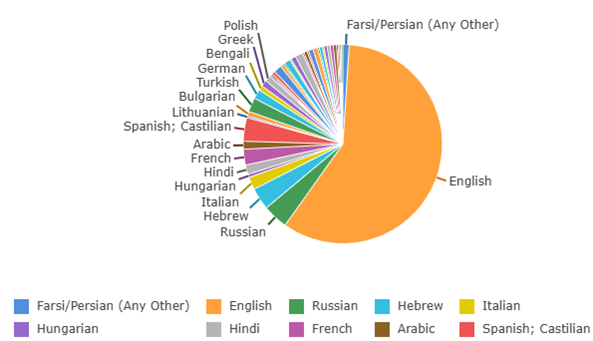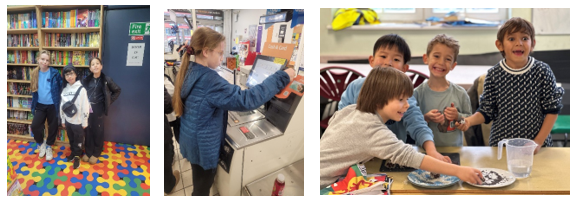English as an Additional Language (EAL)
The term EAL stands for English as an Additional Language. It refers to learners whose first language is not English.
'First language is the language to which the child was initially exposed during early development and continues to use this language in the home and community. If a child acquires English subsequent to early development, then English is not their first language, no matter how proficient in it they become.’
Source: School census preparation and guidance for 2007 (DfES 2007)
The Rich Diversity of our School Community
At Tetherdown, we celebrate the rich diversity of our school community.
- 41.18% of our pupils identified as EAL learners
- 43 different languages spoken across 36 ethnic groups

We understand that children join us at different stages of English language acquisition. All EAL pupils are valued as multilingual learners, and we are committed to ensuring they feel a strong sense of belonging. This commitment is reflected in our inclusive curriculum and everyday practice.
High-Quality Teaching: English as an Additional Language (EAL) at Tetherdown Primary School
High-quality teaching is provided for all pupils, including those with EAL and/or additional needs. Class teachers are responsible for the progress of every child and work closely with parents, the Senior Leadership Team, and external agencies when needed to ensure tailored support is in place.

At Tetherdown, we actively promote equality, diversity, and inclusion. Our teachers use a range of strategies to ensure all children feel represented, respected, and supported in their learning. We believe that all pupils can thrive and achieve beyond expectations, regardless of their ability or background.

How we Support EAL Learners at Tetherdown
When a child who is new to English joins us, we do a short assessment to understand their level (banding – see below). If they are at a point to new to English, we offer small EAL group sessions a few times a week. These sessions focus on building confidence in speaking, listening, reading, and writing.
Our EAL Lead plans the support, and our EAL teacher works closely with class teachers so that children get the right help in class and during their sessions. We regularly check each child’s progress and share updates to make sure they keep improving.
Research from the Bell Foundation, Cambridge show that EAL children, if they do not have other learning challenges, pick up English quickly once they are fully involved in school life. Through playtimes, friendships, and social experiences, their language and confidence grow naturally. Research shows that these children often go on to excel in their learning. It’s common for them to be quieter in their first year as they adjust to new languages and cultures, but with time, they thrive.
Every new pupil has a buddy to help them settle in, and we celebrate all the languages and cultures in our school. We also send phonics videos home so parents can support their child’s learning.
If you’d like to talk more about how we can support your child or share ideas about how we can strengthen the way we work with parents and children in general, please speak with your child’s class teacher as you join the school.
Recommended Resources
We value strong partnerships with parents and carers. To support families, here are some recommended resources:
- Global Storybook Portal – Free multilingual stories for children in English and many other languages.
- Parental Involvement (The Bell Foundation)
- Practice English with British Council Learn English – Games, songs, stories, and activities to practise English at home.
Tetherdown is a place where every child is seen, heard, and supported – a place where language is no barrier to success.
